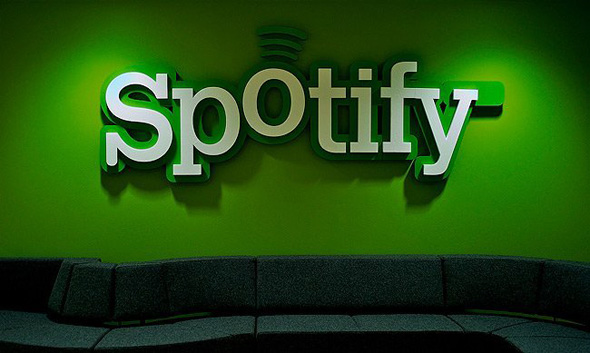
“I’d rather somebody stole the record on vinyl than bought it or streamed it on Spotify.”
Foals frontman Yannis Philippakis is not one to mince his words. His band enjoyed international success this year, with their third album Holy Fire, which was nominated for the Mercury Prize. With this success came legions of new fans, many of which found the band through music streaming website Spotify. Despite this, the singer hit out against the service on Twitter.
“Spotify should be legally obliged to pay artists a respectable royalty. Not the piffle it gives, it’s actually insulting and there is no argument to the contrary…a service that voraciously rips off every artist is indefensible.”
Spotify was launched in Sweden in 2008 and is described as an ‘access-based music service’. Users – of which there are almost 25 million worldwide – choose a subscription plan, and are then given access to a catalogue of millions of songs. It was declared as one of the world’s richest start-up companies just as it launched its first Irish advertising campaign earlier this month.
So, where do the artists fit in? The business strikes royalty deals with record labels and pays about 70 per cent of its revenue back to rights holders. Despite streaming and on-demand music services soaring in popularity, Spotify and similar sites have struggled to make profits due to the cost of royalty fees.
Spotify’s FAQs reads: “Spotify pays out the majority (approaching 70 per cent) of ALL of our revenue (advertising and subscription fees) to rights holders: artists, labels, publishers, and performing rights societies. In just three years since launching, Spotify has paid out over $500 million in royalties.”
However, the company goes on to say that “in general, however, Spotify pays royalties in relation to an artist’s popularity on the service. For example, we will pay out approximately 2 per cent of our gross royalties for an artist whose music represents approximately 2 per cent of what our users stream.”
Atoms For Peace’s Nigel Godrich has taken issue with this. Taking to Twitter after he pulled the band’s album from the site, he said, “new artists get paid [nothing] with this model. It’s an equation that just doesn’t work”. The company responded by telling NME: “Spotify’s goal is to grow a service which people love, ultimately want to pay for, and which will provide the financial support to the music industry necessary to invest in new talent and music.”
In an age where album sales are plummeting and illegal downloading is the norm, streaming can be a raw deal. Tero Kuittinen breaks it down. “The only way to leverage Spotify to create a meaningful chunk of annual income would be to hit 50 million or more plays annually. And that would yield $50,000 a year.”
Is Spotify really the bad guy here? Are artists just expecting too much from an entirely changed market?
“I think you shouldn’t release something as a reasonably unknown band and expect money”, Anthony Madden, singer with Cork-based band Less Than Forever, told The College View.
“Streaming, from a listener’s point of view is the way to go, since they have so much control. I think streaming has definitely revolutionised the industry as it has made it easier for smaller bands to get recognition. But, as they grow, the best way to support them is to purchase directly from the artist.”
Earlier this summer, cellist Zoe Keating broke down her recorded music revenue, including those from Spotify. Just over €200 came from Spotify – a stark contrast to the €33,000 earned from iTunes. This roughly works out at 0.04 cent per stream.
“Basically, I buy music physically where possible as I’m a vinyl collector”, Stephen Grainger, a DJ at Cork’s RedFM, told The College View. “I still download a lot but for me streaming is of little use.”
Do the artists get ripped off? Grainger admits: “Probably; though as a music producer, I’m on the artist side of things too and I’d value exposure first & foremost rather than royalties!”
The music business might do well to take note of the film industry’s course of action. Take Netflix, for example: Netflix is investing capital directly into content creation. Perhaps Spotify should consider providing funding for the financing and devlopment of new artists.
Spotify’s latest investor is Technology Crossover Ventures, which previously invested in Netflix. As the company continues to see significant growth in revenue and users, no doubt the Spotify vs. artists debate will rage on.
Fionnuala Jones




Leave a Reply